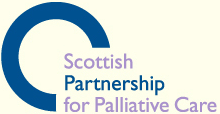- SPPC Achievements 2024-25
- Annual Conference 2025: From System Holes to Whole System
- Call for Posters
- Assisted Dying Bill - Perspectives Informed by Palliative Care
- SPPC’s response to the public consultation on the SG Strategy for Palliative Care
Poster Abstracts of the Month: October
Poster Abstracts of the Month: October
The SPPC Annual Conference in 2017 featured 46 poster displays, sharing work and research underway across Scotland. Each month, this blog focuses on the content of a few of these posters. This month, we focus on five of these:
- Patients, carers and healthcare professionals’ perceptions and experiences of managing metastatic spinal cord compression: a qualitative multiple case study
- Person-centred care – at the heart of what we do
- Proactive Discharge - a person-centred approach to wellbeing within a hospice day service
- 'Putting Activity Back into Life: The Inception of a Wellbeing Group'
- Relational elements of end of life anticipatory care planning (ACP): implementation in Dumfries and Galloway
Patients, carers and healthcare professionals’ perceptions and experiences of managing metastatic spinal cord compression: a qualitative multiple case study
Siew Hwa Lee; Lynn Kilbride; Robin Gran; Catriona Kennedy
Background: Metastatic spinal cord compression (MSCC) is an oncology emergency with a poor prognosis if treated late. Guidelines exist to improve patient outcomes, however the outcome for many remains poor.
Aim: To report the findings of patients, carers and healthcare professionals’ perceptions and experiences of managing MSCC.
Methods: A qualitative multiple case study design. Participants were recruited from an acute cancer centre and primary care in Scotland. Three focus groups (n=25) and interviews with healthcare professionals (n=7) were carried out in phase one. Phase two semi-structured interviews include patients (n=8), carers (n=6) and healthcare professionals (n=42). Patients and carers were interviewed at two time points. Data were analysed thematically.
Results: In phase one, healthcare professionals were ‘negotiating the care-pathway’ as existing guidelines lack a strong evidence base. Phase two revealed a constant movement between uncertainty and enduring inconsistencies (of information, treatment and advice), which results in a struggle to find a balance.
Conclusions: Patient’s preferences are central to managing symptoms where life expectancy is limited. A theory of collaborative decision-making is proposed to reduce uncertainty and facilitate decision-making. The key constructs are: awareness of signs and symptoms of MSCC, collaborative decision-making, prioritising and maximising life and end of life care.
Person-centred care – at the heart of what we do
Katy Simpson
Background: Meeting the holistic, social, spiritual, psychological and physical needs of our inpatients, community patients, their families and carers. Through the use of creative activities, we can provide a robust emotional support service. All of our therapeutic services are provided within The Margaret Kerr Unit. A study carried out by The Canadian Counselling and Psychotherapy Association found that art therapy encourages the development of healthy coping strategies1. This supports our ongoing ‘Public Health Palliative Care’ campaign by raising awareness and engaging with members of the community outwith The Margaret Kerr Unit and palliative care service.
How? By providing services to inpatient and community based patients, it provides social stimulation through enabling them to meet new people and for those out with the unit, it helps break down the barriers and stigma about the Unit and the service we provide. Our events are held weekly and bi-annually to coincide with Dying Awareness Week.
Findings: Patients and families feel many of their needs are well supported alongside the clinical care they are receiving. The uptake of these activities continues to grow each week due to discussions being generated on social media around death and dying awareness.
1 https://www.ccpa-accp.ca/psychological-benefits-of-art-therapy/
Proactive Discharge - a person-centred approach to wellbeing within a hospice day service
Lynsay Bain; Janice Allan; Ann-Majella McFadden
Previous feedback demonstrated patients felt unprepared for discharge from a palliative care day service, Kilbryde Hospice (KH) staff sought a more effective method to support patients through the discharge process. A new Wellbeing Group (WG) was created.
The WG focused on enhancing knowledge and self-empowerment using a person centred approach. Using self-management techniques, enabling and empowering patients to make shared decisions and understand realistic medicine(1). Creating an inclusive and positive discharge process. This reflects the Scottish Governments vision of practising Realistic Medicine putting patients at the centre of decision making. Outcomes were evaluated through the use of evaluation, Patient Activation Measure (PAM)(2) and Views on Care (VoC)(3)
(1) Scottish Government (2017) Realising Realistic Medicine, Chief Medical Officer Annual Report, https://beta.gov.scot/news/realising-realistic-medicine/ accessed on 31/08/17
(2) Hibbard, J., Gilburt, H., (2014) Patient Activation Measure, Supporting people to manage their health, An introduction to patient activation, The Kings Fund Patient Activation Measure, https://www.kingsfund.org.uk/publications/supporting-people-manage-their-health accessed on 31/08/17
(3) Witt J, Murtagh FEM, de Wolf-Linder S et al (2013) Views on Care Introducing the Outcome Assessment and Complexity Collaborative (OACC) Suite of Measures A Brief Introduction Kings College London, https://www.kcl.ac.uk/lsm/research/divisions/cicelysaunders/attachments/Studies-OACC-Brief-Introduction-Booklet.pdf p15 accessed on 31/08/17
'Putting Activity Back into Life: The Inception of a Wellbeing Group'
Sarah Mitchell
The Day Hospice team at St Vincent's Hospice (SVH) has been developing an approach which integrates rehabilitation, enablement, self-management and self-care into the holistic model of palliative care. This has led to the team delivering a 'Wellbeing Group', which is the first of its kind in a hospice setting.
The group combines exercise, support and education, which reflects the well-established and effective format of cardiac and pulmonary rehabilitation. It aims to allow patients to maintain/increase functional fitness, become more active, less sedentary and improve their knowledge of their illness therefore encouraging self-management.
Six palliative care patients attended an 8 week, 2-hour outpatient programme at SVH. The exercise component consisted mainly of circuit-based exercise and the 8 educational components covered topics such as coping with pain, breathlessness and fatigue.
At the end of the programme, the outcome measures (5 functional fitness tests) showed that every patient had improved their functional fitness in at least one aspect. Feedback from the patients was positive and showed they were starting to be more active despite their condition.
The initial Wellbeing Group achieved its aims. The team acknowledge that future programmes should evaluate the impact of the educational component to assess the potential impact on self-management in palliative care patients.
Relational elements of end of life anticipatory care planning (ACP): implementation in Dumfries and Galloway
Jacqueline Kandsberger
This study explores how ACP is currently operationalised in Dumfries and Galloway.
GPs from various districts and levels of urban-rural classification have been recruited. ACP data are being extracted from the medical records of decedent patients and GPs are completing a survey soon after the death of each patient, detailing the different elements of ACP discussions in each case and the associated relational and structural barriers.
After the first 5 months of the study 64 surveys on expected deaths have been collected across 18 GPs. ACP is a coherent process to GPs, however, time is a barrier to implementation and there is insufficient feedback for reflexive monitoring of the process. In 36% of cases patients were open to and capable of discussing ACP and in 67% family members were involved. Specific treatment wishes and personal relationships that influence care are examples of elements most often discussed, while cultural and other values or spiritual beliefs were almost never part of ACP. In 47% of cases information from ACP discussions changed the GPs’ care plan and recommendations at least to a small degree. 72% of patients had a KIS with varying levels of completion and effects on dying in their preferred place of death.


